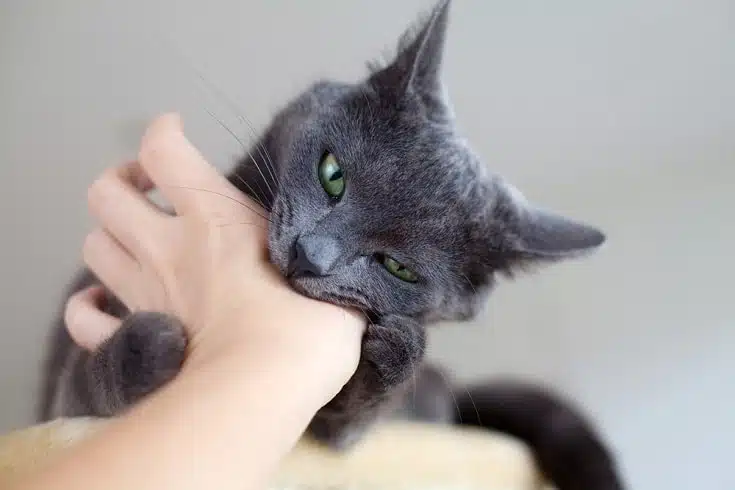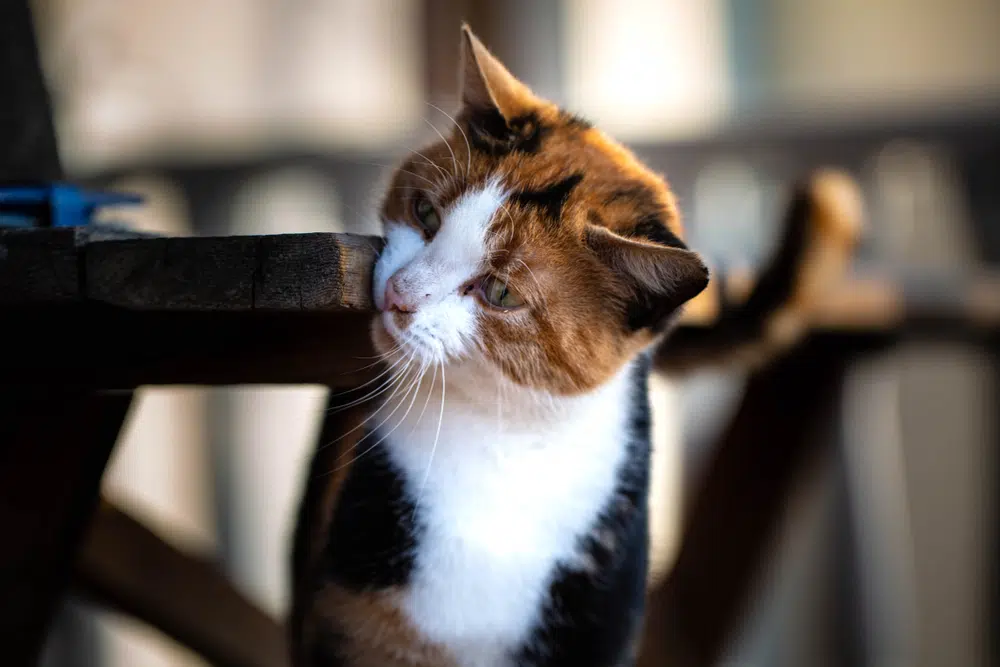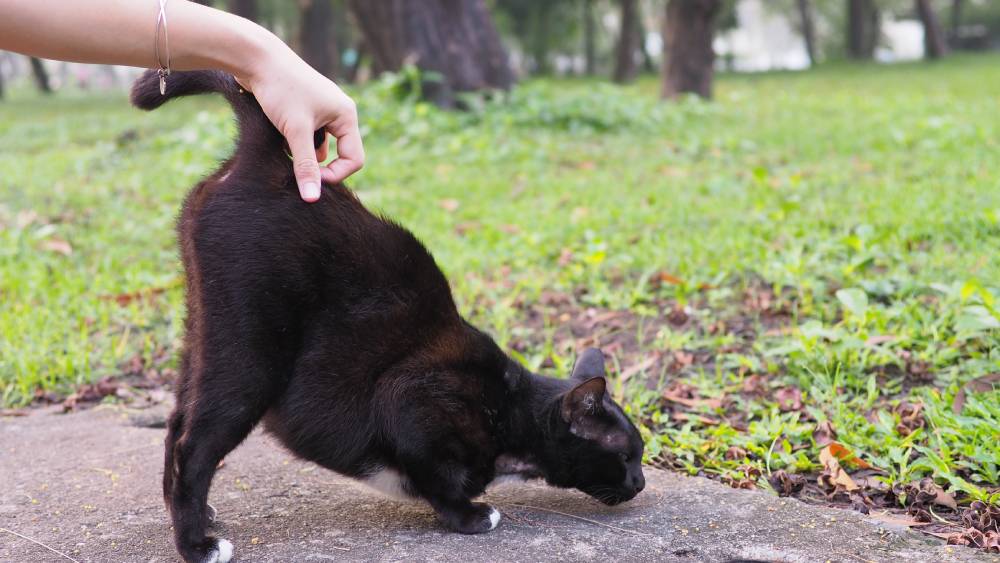Do Cats Protect Their Owners? Facts & FAQ

When we think of protective pets, we tend to think of dogs. However, cats can be very protective of their owners and family. If they feel they or you are threatened, they may take action to try and combat the threat. But, because humans are much bigger than cats, and pose a considerable threat, protective cats will typically warn you and may try and scare the threat off, rather than directly attacking. However, some cats can be overprotective and this may manifest itself as aggression towards visitors.
Below, we look at some of the possible causes of this protective instinct and what you can do to prevent your cat from attacking visitors.
The Cat-Human Relationship
Cats have been domesticated for thousands of years. They share our homes and lives. In some cases, they work with us, especially to protect food against potential scavengers. But, for the most part, they have a reputation for being aloof and standoffish. It can seem as though they don’t really care about us at all, as long as we keep putting food down and meeting their daily requirements.
But, studies suggest that cats also rely on us for comfort and security. They form very strong bonds with their owners, similar to the bonds between humans and dogs or even babies.

Protective Cats
Because cats form these close bonds with their humans, it means they can feel the need to protect. Cats don’t think the same way as humans, or even dogs, so this protective nature doesn’t mean that they will come rushing in to save the day by attacking perceived threats. More likely, they will try to warn you of any danger.
A protective cat may follow you around the house and even sleep with you or near you. It will likely warn you of potential danger by making noise.
Signs Your Cat Is Protecting You
Having a protective cat can seem sweet, and there are even instances of cats chasing away dogs and other potential predators to protect their humans. However, it can become a problem if a cat becomes overprotective. The cat may try and prevent other people from getting too close to you and can even attack visitors to the house or other family members if they perceive them as a threat.
Signs of an overprotective cat are similar to the signs a cat would show if they feel threatened. They will bush up their tail and the fur on their backs, making themselves appear bigger and more threatening than they are. This will be aimed at the person or other animal that they see as a threat. These can be seen as warning signs, and if the threat doesn’t go away, the cat may become more aggressive, eventually leading to scratching and biting.

How to Prevent Aggressive Cat Behavior
Never praise or reward the cat for aggressive behavior. This teaches the cat that aggression is the desired response, and not only will they continue to show similar signs, but they could also become even more aggressive.
Don’t punish the cat for being aggressive, however. Your cat is unlikely to know what it is being punished for so it won’t rectify the problem and may cause anxiety.
Generally, you need to ignore the negative reaction by walking away from it. You can also attempt to distract the cat by providing something acceptable to attack or play with before it gets aggressive.
Do Cats Actually Care About Their Owners?
Studies suggest that cats are attached to their owners. They not only rely on people for their food and water but also comfort and security. So, while it might come as a surprise to the owners of aloof, independent cats, they can care very deeply about their owners.
Do Cats Guard the Home?
Cats can protect their home; in the same way they might protect humans. Typically, this means they will sound an audible alarm for their humans, but it can lead to cats being aggressive towards people visiting the house and potentially even intruders. The size of human visitors means that most cats will avoid direct confrontation with people, though.
Conclusion
Although they can appear aloof and even a little ignorant of their human owners, cats can develop very strong bonds. As well as being reliant on their humans for food, water, and shelter, it has been discovered that they also rely on people for social bonds and security. This means that pet cats can become protective and, albeit very rarely, may even become over-protective and potentially aggressive.


